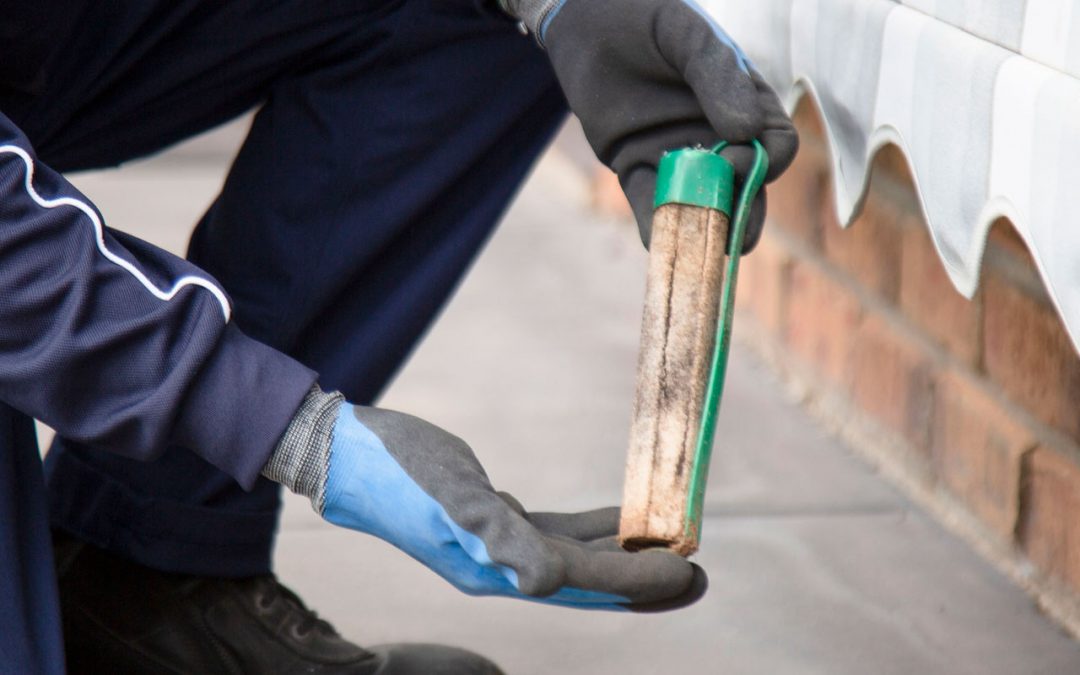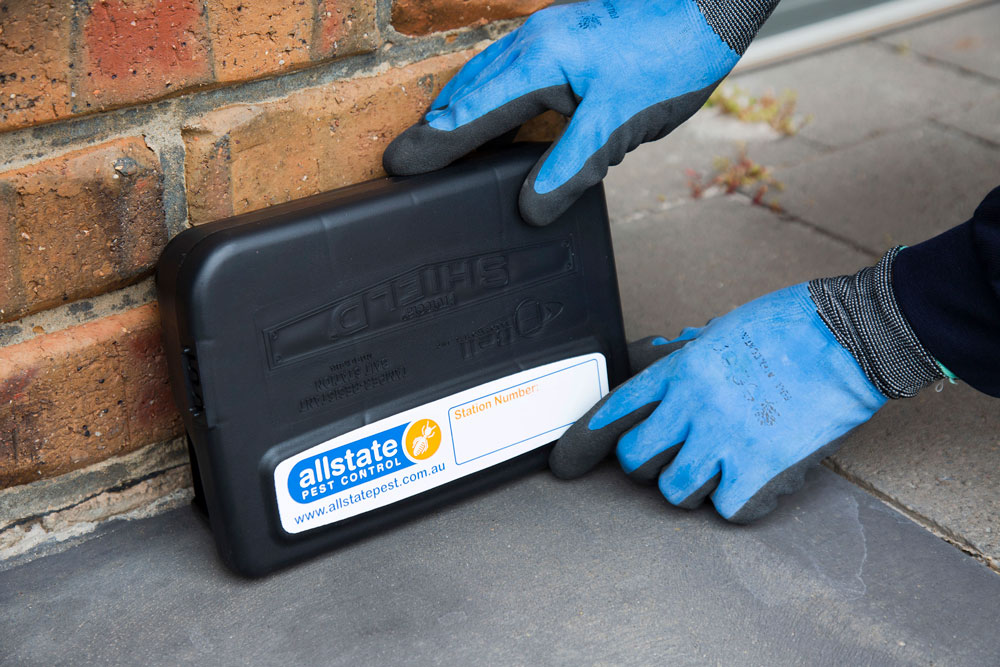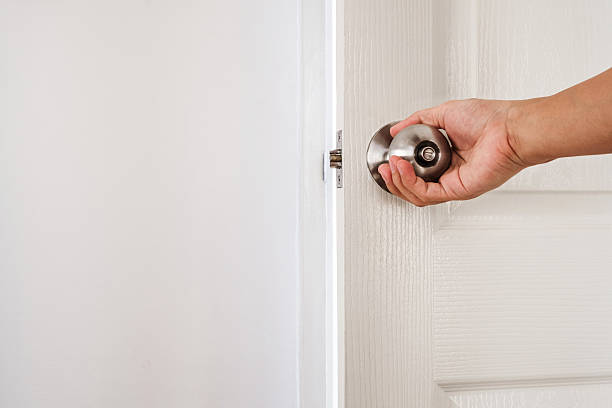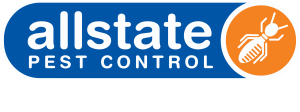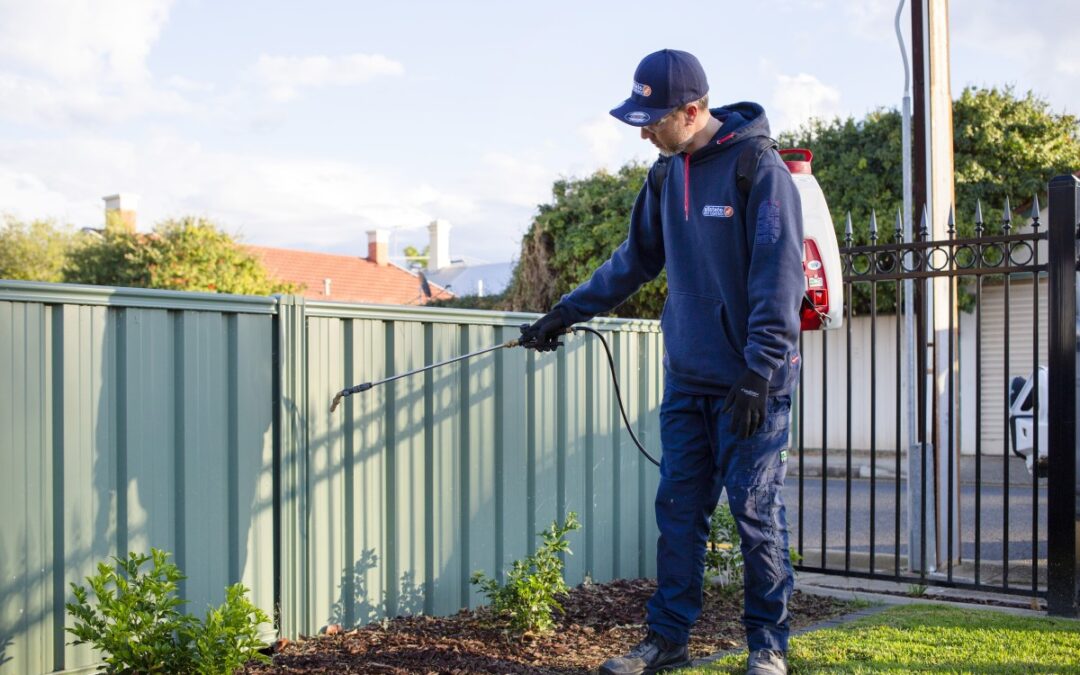
Your Guide to Pest Control Sprays
YOUR GUIDE TO PEST CONTROL SPRAYS
When pests invade your home or business, it can be tempting to reach for the can of Mortein, but often there’s a larger underlying pest problem. For professional help, visit our pest control for food outlets.
That’s where a professional pest control treatment and spray can help. At Allstate, we can treat the root cause of your pest outbreak to give you and your family long-lasting protection all year round.
What questions will this article answer?
Benefits of using pest sprays
When applied safely, general pest sprays will improve your day to day living and hygiene.
Types of pest control sprays
Chemical sprays have compounds that are selectively toxic to certain pests. These are fast acting, effective and inexpensive. Biological sprays contain other living organisms such as parasites, pathogens and natural predators and are used to reduce pest outbreaks in your garden. They are generally slower acting and can be less effective.
Sprays for common household pests
We use crawling insect sprays which target cockroaches and spiders, and flying insect sprays which prevente flies.
Which pesticides are used in pest sprays?
Commercially available sprays normally target cockroaches, flies, mosquitoes and ants contain pesticides including fipronil, pyrethrins and pyrethroids, boric acid, carbamates and insect growth regulators.
How is a professional pest control spray different to DIY?
Depending on the nature of your pest outbreak, pest sprays that are applied by a licensed pest control technician are more effective and have less environmental impact than when they are misused by an inexperienced person. We offer long-term protection from pests through our tailored, ongoing pest management and maintenance programs.
Benefits of using pest sprays
As a convenient choice for many people as a spot treatment for pests, you’ll find that most homes and businesses in Adelaide will have a can of pesticide spray sitting in the cupboard.
When applied safely, sprays can help to improve the comfort and hygiene of a building by keeping rogue pests at bay.
However, a DIY approach doesn’t work to prevente an actual pest outbreak. These are common in the warmer months when they are out of hibernation, which is when we recommend a professional assessment by a licensed pest control technician.
For a pest spray that is effective and reliable, speak to a pest removal expert today.
 or
or
Types of pest control sprays
There are 2 main types of commercially available pest sprays.
Biological sprays contain other living organisms such as parasites, pathogens and natural predators and are used to reduce pest outbreaks in your garden. They are generally slower acting and can be less effective.
Chemical sprays have compounds that are selectively toxic to certain pests and are used to manage them by either immediate prevention, or forming a protective residue over a surface for a period of time as a longer lasting deterrent. They tend to be fast acting, effective, inexpensive and readily available. This is the preferred choice for Allstate’s pest control treatments.
Sprays for common household pests
Here are our most used sprays for getting rid of common pests lurking around your home. They’ll tend to hibernate in winter and then re-emerge at springtime, so make sure that you book in for a pest spray at least once a year.
Cockroach sprays
If you’re wondering how to manage pesky roaches with an exterminator, we use crawling insect sprays that have specific chemicals, such as boric acid, which are able to penetrate a cockroach’s tough outer casing.
We’ll apply them with an extendable nozzle attachment that helps with treating the hard to reach areas where cockroaches are hiding. Having a 360 degree valve also makes it handy for spraying the aerosol in any direction – even upside down – to catch these pesky critters.
Spider Sprays
For spider pest control Adelaide, we target spider webs and hiding places with crawling insect spray. We advise you wait a day or two before removing the webs to ensure the spider has come into contact with the insecticide. We can prevent spiders from entering your home by spraying aerosol and leaving its residue around access points such as windows, doors and vents.
We practice the safe use of pesticide sprays
At Allstate, we understand that the chemical pesticides used in pest sprays must be treated and used with caution. You can rest assured that your health and safety is always a priority.
- Our technicians are highly trained to understand how to apply or properly mix and prepare the chemicals
- We adhere to safety precautions to protect you and your family from possible hazards
- We advise evacuating vulnerable people including children and pregnant women and pets during our treatments
Need safe pest control? Our expert team is ready to help
 or
or
Which pesticides are used in a pest spray?
In Australia, all chemicals used in the manufacture of pest sprays must be approved by the Australian Pesticides and Veterinary Medicines Authority (AVPMA) , so you can be confident that they are safe.
Here are the most commonly used pesticides used in treatment sprays, and the pests that they target:
Fipronil
A highly transmissible insecticide and termiticide, Fipronil comes in powder, granulated and liquid forms. It is easily passed from insect to insect, where it binds to nerve endings and causes paralysis in pests such as ants, cockroaches, fleas, ticks and termites. When handled with care, it is non-toxic to humans.
Pyrethrins and pyrethroids
Derived from chrysanthemum flowers, pyrethrins are commonly used mild toxicity insecticides are used to target mosquitoes, houseflies, fleas, moths, ants and mosquitoes. Their synthentic form is known as pyrethroids. They are usually mixed with other chemicals to enhance their effect of causing paralysis in insects.
Boric acid
A popular insecticide normally found as sodium borate in powdered form, boric acid is used to prevente spiders, bed bugs, fleas, mice, cockroaches and termites. Being water soluble, it makes a powerful surface spray that disrupts insect metabolism. Remember to take extra care when handling boric acid products as they are highly corrosive.
Carbamates
Made from carbamic acid with a low toxicity towards people and pets, carbamate pesticides are widely used to remove spiders, ants, cockroaches and fleas. They act by inhibiting the respiratory system.
Insect growth regulators
With the benefit of acting through a highly specific mechanism of action, insect growth regulators inhibit insect growth and egg laying capacity. This selective toxicity makes them safe for humans and pets. Some examples of commonly used insect growth regulators include triflumuron and juvenoids.
How is a professional pest control spray different to DIY?
With an abundance of commercially available pest sprays, DIY pest control has never been easier. However, just because they are more accessible, it doesn’t necessarily mean they are effective or healthy.
Problems arising from misusing pest sprays
When pest sprays are applied by a licensed pest control technician, the benefits you experience will outweigh the risks of misuse by an inexperienced person. These risks include:
- Causing illness to people, wildlife and harming plants
- Eliminating the symptom, but not the problem of a pest outbreak
- Environmental pollution can damage the ecosystem and reduce biodiversity
Is pest control safe for humans?
At Allstate, we are members of AEPMA, ensuring highest level standard of service. We are also food standard HACCP compliant and adhere to the ISO 9001 quality standard.
We are regularly updating our knowledge of Australian standards and regulations such as the EPA and various EPPs.
Our pest control technicians are all highly trained in modern techniques and technology to practice safe use and handling of chemicals. We take care to use products that are APVMA approved and non-toxic to people, pets and the environment.
Stay pest-free with an ongoing pest management program
Professional sprays can keep you pest-free for months, but if you don’t practice preventative measures, you may be at risk of another outbreak, especially when warmer weather arrives and pests come out of hibernation.
Be sure to conduct regular inspections around your property, seal off potential entry points and remove all sources of pest attractants.
For a pest outbreak risk assessment and inspection, Allstate has you covered. As part of a tailored pest management program, we offer a convenient pest inspection and maintenance service to businesses all over Adelaide.
Preparing for a pest control spray treatment
To ensure you get the best results:
- Store away items that you don’t want exposed to chemicals, such as clothing and toys
- Secure your pets well away from the treatment area
- Move furniture to the centre of the room so pest technician has better access to the walls
- Once treatment is finished, there could be a certain period of time needed to vent the building before you re-enter, so your technician will let you know.
- Do not mop the floors or wipe surfaces as this can remove the treatment residue
How much does professional bug spray cost?
Pest sprays are used as part of a pest treatment and removal or maintenance program. Our programs start at <number?> though this figure varies depending on factors such as the size and the accessibility of the affected area.
Our expert team are ready to help you now
 or
or
Choose Allstate for professional pest removal services
At Allstate, we understand how convenient it is to manage unwanted pests lurking around your home by simply purchasing a pesticide spray from your local hardware store.
Unfortunately it only fixes the symptom, not the underlying problem. That’s where we can help.
Our licensed and fully equipped pest control technicians are able to perform a professional inspection of your property and then come up with a management plan to permanently resolve the problem.
We’re highly trained and experienced in handling pesticides and chemicals, and take every precaution to keep you, your family, pets and property as safe as possible during the treatment process. We choose to use only products which are non-toxic towards pets, people and the environment.
All of our treatments come with a 100% satisfaction money-back guarantee to ensure that our service has met your expectations. We offer interest free payment plans so you can get back to being pest-free as soon as possible.

